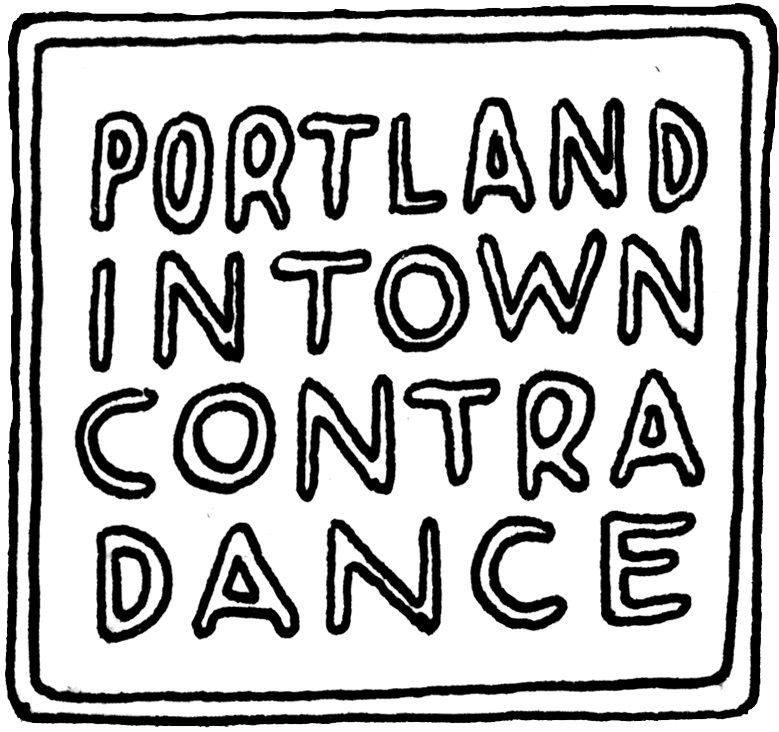LET’S LEARN
What is the hidden history of American Folkways? Why was it hidden?
We’re continually asking ourselves these questions, and doing a lot of reading to better understand the true history of the folkways we practice. Part of loving something is seeing it for what it has been and is, and we believe it’s critical to examine the ways folk dance and music have been used as oppressive tools in order to genuinely practice these folk arts in new, transformative ways that enable social justice. We invite you to join in the learning and growth.
RESOURCE LIST: HISTORY OF AMERICAN FOLKWAYS
This list isn’t exhaustive, and it isn’t expertly curated. It’s simply a place to start looking:
Books
African Banjo Echoes In Appalachia: A Study of Folk Traditions by Cecelia Conway
Hoedowns, Reels & Frolics by Phil Jamison
City Folk by Daniel J. Walkowitz
Sinful Tunes and Spirituals: Black Folk Music to the Civil War by Dena J. Epstein
African Banjo Echoes in Appalachia by Cecelia Conway
Romancing the Folk: Public Memory & American Roots Music by Benjamin Filene
The Music of Black Americans: A History by Eileen Southern
Race In Country Music Scholarship by Olivia Carter Mather
Love & Theft: Blackface Minstrelsy and the American Working Class (Race and American Culture) by Eric Lott
Demons of Disorder: Early Blackface Minstrels and Their World by Dale Cockrell
Culture On The Margins: The Black Spiritual and the Rise of American Cultural Interpretation by Jon Cruz
Hidden In the Mix: The African American Presence in Country Music by Diane Pecknold
The Guitar and the New World: A Fugitive History by Joe Gioia
The Imagined Village: Culture, Ideology, and the English Folk Revival by Georgina Boyes
The Invention of Tradition Edited by Eric Hobsbawm & Terence Ranger
Fakesong: The manufacture of British ‘Folksong’ 1700 to the present day By Dave Harker
Articles & Online Written Work
Addressing Racism as a Dance Community by Dela Murphy at Portland Intown Contra Dance
”Square Dance Calling: The African American Connection” by Philip A. Jamison
“The Anti-Semitic Origins of Henry Ford’s Arts Education Patronage” by Emery Warnock
Rhiannon Giddens' Keynote Address at IBMA Conference: Community and Connection
Article featuring Rhiannon Giddens, part of which is about Frank Johnson (one of the most popular Americans and fiddlers we've never heard of)
”Ethnicity and Class: Black Country Musicians in the Maritimes” by Neil Rosenberg
”The White Fear of Taking Racist Songs Out of Music Education” by Martin Urbach
“Dinah Put Down Your Horn: Blackface Minstrel Songs Don’t Belong in Music Class” by Katya Ermolaeva
“The Music I Love is a Racial Minefield” by Michael Mechanic
“Accessing the Inside of the Tent: The Optics of Inclusivity in Music Education” by Christopher Mena
“Black Artists Built Country Music - and Then it Left Them Behind” by Andrew Chow
Listening & Watching Online
Cultural Appropriation in American Folkways conversation with Kafari and Jake Hoffman
Uncivil podcast "The Song", which explores appropriation and structural racism through the history of the song "Dixie"
American Songster Radio Podcast, hosted by Dom Flemons“American Songster Radio is a monthly look at the roots of American Popular music. It’s hosted by world renowned musician and folklorist Dom Flemons who playfully refers to himself as The American Songster.”
1619 Podcast Episode 3: The Birth of American Music
Rhiannon Giddens and Francisco Turrisi video with Live with Carnegie Hall
Giddens and Turrisi go “through the music and history of minstrelsy—the most popular form of entertainment in America during the 1800s and a major influence in the creation of the American cultural identity. The two restore minstrelsy to its global context through the journeys of the banjo and the tambourine, and in tracing those journeys show what there is to reproach versus celebrate in the birth of American music.”
American Folk Podcast featuring Jake Blount, hosted by Cindy Howes
“Country Music” documentary series with Ken Burns
The first several episodes relate the stories of early Black originators of country music traditions.
”Wood That Sings: Indian Fiddle Music of the Americas” album featuring Various Artists
“This anthology of Indian fiddle music of the Americas features performances by Indian musicians from Nova Scotia and Manitoba to North Dakota and Arizona, to Mexico, Peru, and elsewhere in Latin America. Using this most popular of instruments as a way to explore the great variety and creativity of Indian musical traditions—from chicken scratch to the indigenous Apache fiddle—this recording expresses the capacity of Native cultures to adapt and synthesize non-Native influences.”
Online Exhibits
History of Minstrels: From “Jump Jim Crow” to “The Jazz Singer”
”An online exhibit from the University of South Florida on the history of blackface minstrelsy, highlighting the creation and rise of America's first popular music and stereotypes from the art form that persist to this day.”
"Musical Passage"
“Musical Passage tells the story of an important, but little known record of early African diasporic music." "Enslaved Africans and their descendants revolutionized global music historical records tell us far too little about their earliest practices. In this site we offer a careful interpretation of a single rare artifact, from Hans Sloane's 1707 Voyage to the Islands of Madera, Barbados, Nieves, S. Christophers and Jamaica. Tucked away in this centuries-old book, are several pieces of music that make it possible to hear echoes of performances long past."
Organizations & Projects
Reminder: July’s Reading Group
Starting this month, PICD will host a reading group focused on anti-racism. To participate, simply buy or borrow the book of the month, read it while using the reading guide for reflection, and participate in the Zoom call. There is no cost to attend, but pre-registration is required.
July's book is White Fragility by Robin Diangelo. Reading guide and Zoom link are available when you register. The Zoom gathering will be Thursday, July 30 from 7-9pm. Join us!

